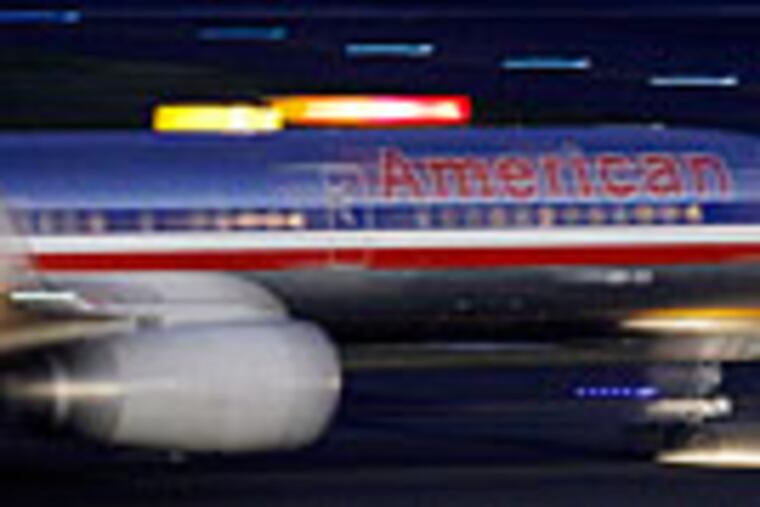US Airways, Delta in airport 'slots' trade
US Airways Group Inc. and Delta Air Lines got the green light from regulators Thursday to swap some takeoff and landing rights at New York's LaGuardia and Washington's Reagan National Airports.

US Airways Group Inc. and Delta Air Lines got the green light from regulators Thursday to swap some takeoff and landing rights at New York's LaGuardia and Washington's Reagan National Airports.
At Reagan, US Airways - the dominant carrier in Philadelphia - will acquire 42 Delta slots, which translate into round-trip flights, along with international rights to fly to Sao Paulo, Brazil, in 2015. Delta will also pay $66.5 million to US Airways.
In return, Delta will get 132 slots at LaGuardia, currently used by US Airways Express flights, to increase its presence in New York, where it already has a hub at John F. Kennedy International Airport.
The Transportation Department tentatively approved the trade, conditional on the carriers' selling eight slot pairs at Reagan and 16 slot pairs at LaGuardia to airlines that have limited or no service at those airports to boost competition.
LaGuardia is a money loser for US Airways, and Reagan National is one of US Airways' most profitable operations. Delta's increased presence at LaGuardia would alleviate strain on its JFK operation.
Delta and US Airways said they "welcome the decision," and would move forward with the plan. "I think this is generally good news," said airline analyst Hunter Keay of Wolfe Trahan & Co.
Earlier Thursday, US Airways Group Inc. and United Continental Holdings reported that profits fell in the second quarter - 12 percent for United and 67 percent for US Airways - from a year ago because of higher fuel expenses.
Attributing the profit decrease to a 47 percent rise in fuel prices, US Airways CEO Doug Parker said 2011 "could easily break 2008's record for the highest fuel prices ever."
Airlines are better prepared to blunt fuel costs due to industry consolidation and mergers, capacity reductions in flights and aircraft, and higher fares. Most carriers plan further seat-capacity trims after Labor Day.
US Airways' profit fell to $92 million, or 49 cents a share, compared with $279 million, or $1.41 a share, a year earlier. The Tempe, Ariz.-based company operates 431 daily flights - about 66 percent of the total - at Philadelphia International Airport.
Excluding special charges, US Airways earned $106 million, or 56 cents a share, on revenue that rose 10.5 percent to $3.5 billion, in line with Wall Street estimates.
United and Continental Airlines, which merged in October, said second-quarter net profit fell to $538 million, or $1.39 a share, down from $611 million, or $1.57 a year earlier. Excluding special charges, United earned $1.49 a share, better than Wall Street expected at $1.43 per share.
"Although fuel prices moderated somewhat in the quarter, they remained very high and volatile," United CEO Jeffrey Smisek told investors. "We saw our second-quarter fuel expense, excluding the impact of hedges, rise $1.1 billion compared to the same period in 2010."
Alaska Airlines, which flies mostly on the West Coast, also posted a profit Thursday in line with analysts' projections.
"We are operating in a tepid economic environment," Smisek said. "We have responded by raising fares in the face of high fuel costs and reducing our capacity to reflect the challenging environment."
Corporate travel is stable, said Jim Compton, chief revenue officer at United. "What we're hearing from the corporations, it's kind of business as usual. The fare environment remains strong, and demand is about where we have seen it over the last six months."
United Continental shares closed up 6 cents to $20.34. US Airways stock closed unchanged at $6.90. Alaska rose 25 cents to $65.95.
American Airlines' shares dropped 37 cents, or 7.5 percent, to $4.55, after the airline's second-quarter loss widened to $286 million. American announced an order for 460 new Airbus and Boeing Co. jets on Wednesday, but that failed to calm investor concerns about American's future.